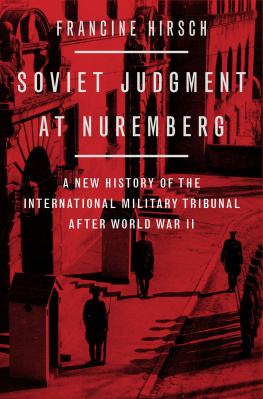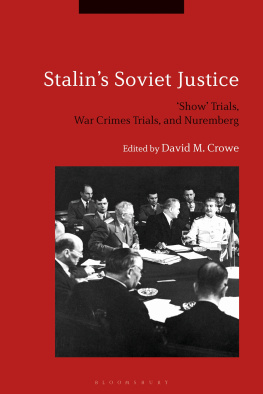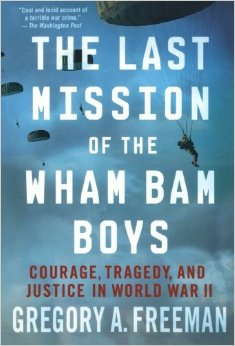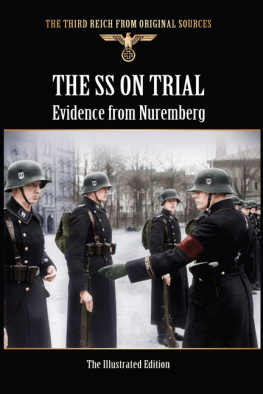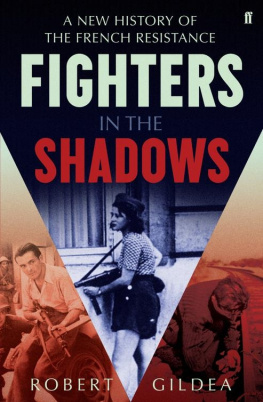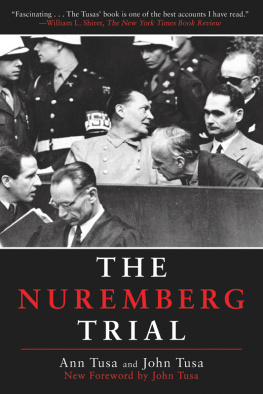

Westview Press was founded in 1975 in Boulder, Colorado, by notable publisher and intellectual Fred Praeger. Westview Press continues to publish scholarly titles and high-quality undergraduate- and graduate-level textbooks in core social science disciplines. With books developed, written, and edited with the needs of serious nonfiction readers, professors, and students in mind, Westview Press honors its long history of publishing books that matter.
Copyright 2015 by Westview Press
Published by Westview Press,
A Member of the Perseus Books Group
All rights reserved. Printed in the United States of America. No part of this book may be reproduced in any manner whatsoever without written permission except in the case of brief quotations embodied in critical articles and reviews.
Every effort has been made to secure required permissions for all text, images, maps, and other art reprinted in this volume.
Some material in this book has been adapted with permission from the authors previously published work. Chapter 5, includes excerpts from Misjudgment at Nuremberg, published in the New York Review of Books, October 7, 1993.
Westview Press books are available at special discounts for bulk purchases in the United States by corporations, institutions, and other organizations. For more information, please contact the Special Markets Department at the Perseus Books Group, 2300 Chestnut Street, Suite 200, Philadelphia, PA 19103, or call (800) 810-4145, ext. 5000, or e-mail .
Cover photo: German soldiers and Italian fascist militia line up passersby following the Communist partisan attack on German military policemen on the via Rasella in Rome, March 23, 1944. The attack led to the massacre, by the German SS, of 335 uninvolved Italians in the Ardeatine Cave. Source: Bundesarchiv, Bild 101I-312-0983-03 / Photo: Koch (cropped)
Library of Congress Cataloging-in-Publication Data
Dek, Istvn.
Europe on trial : the story of collaboration, resistance, and retribution during World War II /
Istvn Dek, Columbia University ; foreword by Norman Naimark, Stanford University.pages cm
Includes bibliographical references and index.
ISBN 978-0-8133-4790-5 (ebook) 1. World War, 19391945CollaborationistsEurope. 2. World War, 19391945Underground movementsEurope. 3. World War, 19391945Occupied territories. 4. World War, 19391945Reparations.
I. Title.
D802.E8D43 2015
940.534dc23
2014042285
10 9 8 7 6 5 4 3 2 1
In memory of Dr. Juris Bla Stollr (19171944) and his then-fiance, va Dek Veress (19222010)
CONTENTS


The military battles and diplomatic wrangling of World War II in Europe reached a bittersweet conclusion for many Europeans: the defeat of Nazi Germany, to be sure, but also the advance of Soviet power on the continent. For many East Europeans, in particular, the Soviet postwar occupation remains a much more consequential part of their historical consciousness than the Nazi control of Europe that preceded it. For many West Europeans occupied by or allied with the Germans, the overwhelming image of Nazi evil conveniently blots out their own collaboration and connivance with German aims. Black-and-white evaluations of national virtue or immorality in World War II usually do not hold up under close scrutiny. True, Hitler and the bad guys lost; a new and much more civilized Europe eventually emerged from the rubble and ashes of the old. But along with the contests on the battlefield and the machinations of international politics, the process of victory contained within itself a whole series of unpredictable and ironic twists of fate. It is at this level of how the war was experienced by Europeans that Istvn Dek excels and Europe on Trial is so important. This is not the war that most Europeans want to remember today, nor is it the war analyzed in grand military and diplomatic histories.
Istvn Dek is Seth Low Professor Emeritus at Columbia University. He is the author of a number of prizewinning studies of the history of the late Habsburg monarchy. The culmination of this work and thinking is Europe on Trial. Deks final verdict on how well the Europeans withstood the moral and ethical challenges of the war is not that of a judge, who determines the guilt or innocence of the accused. Yet the feeling the reader has when putting down the book is that the case for the prosecution is stronger, while that for the defense, which understandably dominates the national consciousness of the individual peoples of Europe today, is considerably weaker. Even the Germans have begun to talk about being victims, as well as perpetrators.
Behind Deks work is a depth of moral passion that comes, perhaps, from his own youthful experiences in wartime Hungary, including a stint in a forced-labor battalion and being a witness to the siege of Budapest toward the end of the war. But that passion never gets in the way of his deep respect for the actual circumstances that dictated historical choices. Constantly, he asks the reader: What would you do if you were in the position of a poor Polish peasant, begged by Jews to hide them, or of an unemployed Norwegian youth, urged by the Quisling government to join the Waffen SS, or of a Serb resistance fighter, caught between the terror of the German occupation and hostile threats of the Communist partisans? What would you do as a government official in orderly Holland under Nazi rule? Would you have efficiently and dutifully supplied the Nazis with a list of Jews, who would eventually be transported to Auschwitz and eliminated? He even asks us to put ourselves in the place of the German occupiers. What you would do if you were a Wehrmacht official in Italy (or France or Poland), faced daily with attacks and bombings that killed and maimed your soldiers and undermined your military efforts? Would you have ordered the execution of civilians or prisoners as reprisals? And if so, how many executions would have been justified?
In Deks rendition of the war, the dilemmas that individuals faced reflect on an everyday level the egregious cynicism of high politics in war. Take the Nazi-Soviet Pact of August 1939, in which the Soviets precipitously abandoned their principled antifascism in order to reap the potential benefits of a German war in the West and to incorporate the eastern parts of Poland (western Belorussia and western Ukraine) into the Soviet Union. The Soviets waited until the Nazis had defeated the Poles and seized Warsaw before invading the East. During their occupation of eastern Poland, they murdered twenty-two thousand Polish officers and officials and deported an even larger number of their family members to camps in northern Kazakhstan. When asked by Polish officials what happened to their officers, Soviet officials initially responded that they must have left the country through central Asia. Later Soviet officials blamed the massacre on the Nazis and denied complicity until the very end of the Soviet Union. These cynical moves do not, of course, say anything about the brutal secret protocols of the pact that gave Stalin license to incorporate the Baltic states and Bessarabia (Moldova) into the Soviet Union.
Next page

